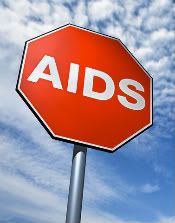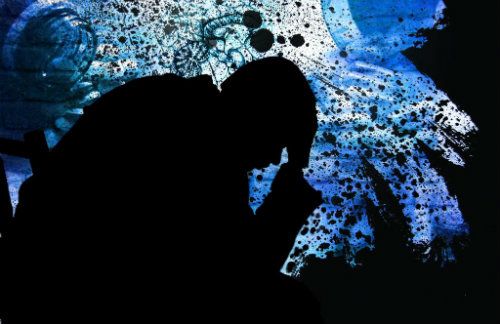 I’d like to discuss HIV/AIDS as it pertains to mental health, since I think it’s a topic that deserves more emphasis. I think it’s fairly intuitive that living with a disease like HIV/AIDS would be likely to have an adverse impact on one’s mental health. This goes for living with a lot of illnesses, especially life-threatening ones, but I believe there is still a special social stigma attached to HIV/AIDS which makes the reality of coping with it in a sometimes cold and judgmental world all that much harder. For the purposes of this diary, I will not be delving heavily into signs/symptoms or statistics for the populations affected. Rather, I want to focus on the mental health concerns that go along it.
I’d like to discuss HIV/AIDS as it pertains to mental health, since I think it’s a topic that deserves more emphasis. I think it’s fairly intuitive that living with a disease like HIV/AIDS would be likely to have an adverse impact on one’s mental health. This goes for living with a lot of illnesses, especially life-threatening ones, but I believe there is still a special social stigma attached to HIV/AIDS which makes the reality of coping with it in a sometimes cold and judgmental world all that much harder. For the purposes of this diary, I will not be delving heavily into signs/symptoms or statistics for the populations affected. Rather, I want to focus on the mental health concerns that go along it.
As one might expect, depression and anxiety are prevalent amongst people with HIV/AIDS. The psychological strain of dealing with the condition itself can be intense, and the added burden of trying to cope with social stigma only increases the risk of developing mental health problems. Common responses to an initial diagnosis of the disease are denial, anger, sadness/depression, fear/anxiety, and general stress. Even for those who have never suffered from a life-threatening illness, I think it’s pretty easy to understand why someone would have those reactions. Sympathizing is, perhaps, a relatively simple task – truly empathizing is not. It is impossible for someone who does not have to live with HIV/AIDS to “understand” how these patients feel.




 I’d like to discuss HIV/AIDS as it pertains to mental health, since I think it’s a topic that deserves more emphasis. I think it’s fairly intuitive that living with a disease like HIV/AIDS would be likely to have an adverse impact on one’s mental health. This goes for living with a lot of illnesses, especially life-threatening ones, but I believe there is still a special social stigma attached to HIV/AIDS which makes the reality of coping with it in a sometimes cold and judgmental world all that much harder. For the purposes of this diary, I will not be delving heavily into signs/symptoms or statistics for the populations affected. Rather, I want to focus on the mental health concerns that go along it.
I’d like to discuss HIV/AIDS as it pertains to mental health, since I think it’s a topic that deserves more emphasis. I think it’s fairly intuitive that living with a disease like HIV/AIDS would be likely to have an adverse impact on one’s mental health. This goes for living with a lot of illnesses, especially life-threatening ones, but I believe there is still a special social stigma attached to HIV/AIDS which makes the reality of coping with it in a sometimes cold and judgmental world all that much harder. For the purposes of this diary, I will not be delving heavily into signs/symptoms or statistics for the populations affected. Rather, I want to focus on the mental health concerns that go along it. We all experience anxiety from time to time. In “normal” amounts, it is a healthy feeling which warns us of potential dangers or motivates us to get things done. A moderate level of anxiety may in fact
We all experience anxiety from time to time. In “normal” amounts, it is a healthy feeling which warns us of potential dangers or motivates us to get things done. A moderate level of anxiety may in fact